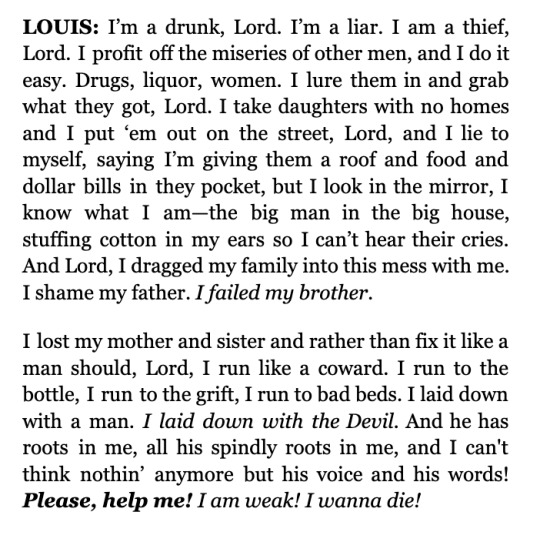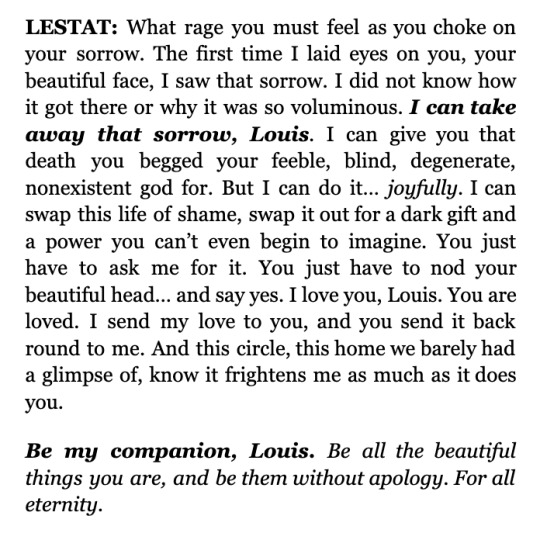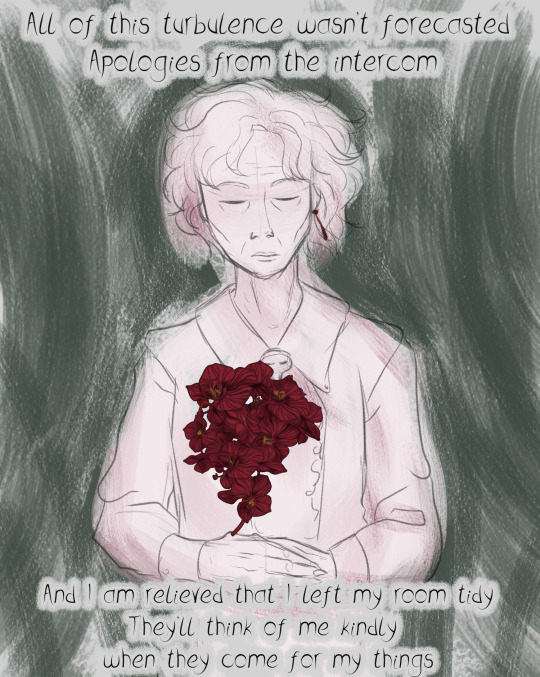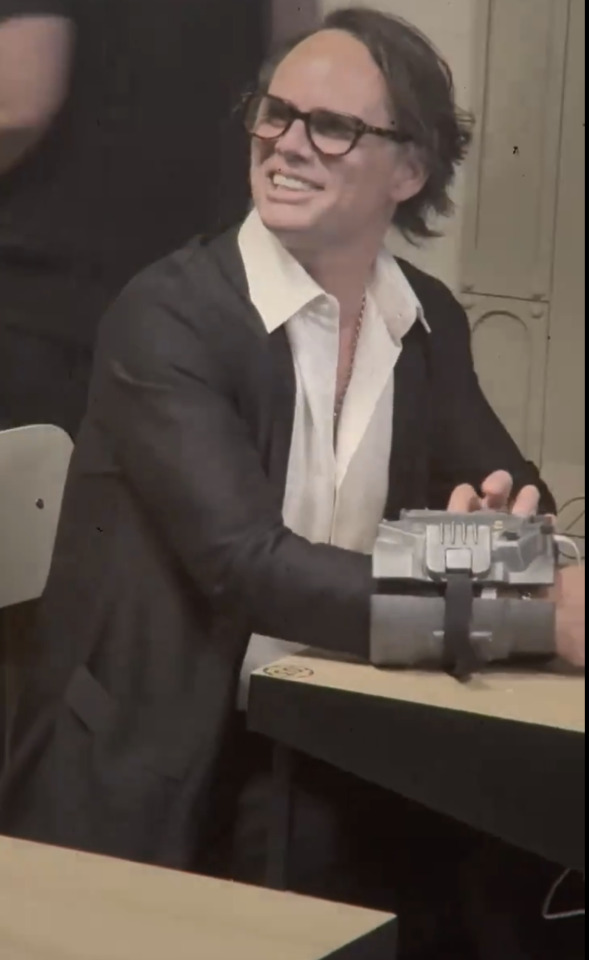#bonafide
Text

Bona Fide
#bona fide#bonafide#shiny#shiny forms#leggings#pure forms#skinny#fit girls#cutie#beautiful people#beauty
710 notes
·
View notes
Photo

Pinned | Bonafide
I don’t paint often anymore, but when I do I surprise even myself.
-----------------------------------------------------------------
Follow me on | Twitter | Instagram | Youtube
Support me on | Patreon | Kofi
#character art#dnd#bonafide#art#digital art#painting#digital painting#illustration#draws#character design#oc#original character#Dungeons and Dragons#fanart#critical role
342 notes
·
View notes
Text
other playlists. sorry if you don't like every genre ever. i do. lol. featuring smaller walton roles! yay!!
#venus van dam#sons of anarchy#steve naish#house of 1000 corpses#walter stans#predators 2010#el chamaleón#machete kills#lawrence maze runner death cure#sonny burch#antman and the wasp#john bronco#skinny man#jonathan miller#fatman#walton goggins#playlists#bonafide
12 notes
·
View notes
Photo


— Louis’ plea, Lestat’s offer
205 notes
·
View notes
Text
Bands I follow on Spotify with less than 500K listeners per month. I feel like it will be most of them. I will use the tag #<500K if you want to track along. I'll be doing 10 at a time.
Format Band name (# of listeners per month)
Brides of Destruction (7K)
Grim Reaper (50K)
Bang Tango (26K)
Beherit (18K)
Seduce (1K)
Hellhammer (27K)
Smoke 'n' Mirrors (488)
Bonafide (88K)
Wildside (31K)
Koritni (30K)
#<500K#Brides of Destruction#Grim Reaper#Grim Reaper band#Bang Tango#Beherit#Beherit band#Seduce#Seduce Band#Hellhammer#smoke 'n' mirrors#Bonafide#bonafide band#Wildside#wildside band#Koritni#Spotify
3 notes
·
View notes
Text

The last words of a shooting star
Last session we had our first major NPC death
RIP Rosemary :'(
#my art#we were all completely blindsided by it#her relationship with the group had been a mixed bag given she worked for a god of death who was harassing the group up until very recently#she also was the mother figure of two dmpc's so they lost their mom basically#dnd#digital art#Bonafide
4 notes
·
View notes
Photo

Guess what came in today! #rockatthebottomofthesea is officially mine.😎 #bonafide #GishlanBooks #Gishlan #Gishlanseries #gishlanandallitsgishlaners #Mermaids #mermaidbook #BlackMermaids #GishlanMermaids #HelenMPugsley (at Laramie, Wyoming) https://www.instagram.com/p/CpQVWrQJXby/?igshid=NGJjMDIxMWI=
#rockatthebottomofthesea#bonafide#gishlanbooks#gishlan#gishlanseries#gishlanandallitsgishlaners#mermaids#mermaidbook#blackmermaids#gishlanmermaids#helenmpugsley
4 notes
·
View notes
Text
OLDIES SUNDAY: @MaxiPriest - Close To You (1990)
February is celebrated as Reggae Month. It also recognizes Black History Month in many parts of the world. The month is also one for love as Valentine’s Day is celebrated. For today’s Oldies Sunday selection, we celebrate a Black Man who created a love song in the name of Reggae. His name is Maxi Priest, and we check out “Close To You“.
Produced by Handel Tucker, Geoffrey Chung, and Sly Dunbar,…

View On WordPress
#13thstreetpromo#13thstreetpromotions#1990#blog#Bonafide#Close To You#Geoffrey Chung#Handel Tucker#jamaica#Maxi Priest#music#music video#Old School#Oldies#Oldies Sunday#reggae#Reggae fusion#riddim#Sly Dunbar#UK#wordpress
2 notes
·
View notes
Text










#Bonafide#live#concert#germany#concertphotography#music#musican#artists on tumblr#vmb#rock#koblenz#bonn#wdr rockpalast#crossroads festival#2024#sweden#vmb photography
0 notes
Photo

#bonafide#fit girls#bellybutton#cute belly#pierced belly button#swimwear#Ponytail#cutie#beauty#skinny#pure forms#shiny forms#wet
540 notes
·
View notes
Text
THE GLASSES.

11 notes
·
View notes
Text
Understanding is a predator’s tool
… but love is also predation.
[Spoilers for Nightmare Alley by William Lindsay Gresham, the Hannibal series by Thomas Harris, adapted for NBC by Bryan Fuller, and AMC’s Interview with the Vampire].
Who dares to understand us? Certainly, only someone who loves us would make that terrible effort. But what if love wasn’t the motive–or at least, not the only motive? What if understanding was a weapon? And what if it was a weapon pointed at both ends?
Monsters in horror or horrific tales have various tools at their disposal. Understanding is one of them. They use what they understand of you to manipulate, influence, or otherwise hurt you. This can feel like both a loving gesture and a violation. First, this monster is intimate with you; they have knowledge of you that you believed you’d hidden well, knowledge reserved for someone devoted enough to discover it. Second, this monster shows no kindness to you when they draw out this knowledge and use it to their advantage. The victim feels like their heart has been turned out to the air. It is an attack that is cruel because it is intimate.
What is the effect of this attack? Here’s how the victim of understanding experiences it in William Lindsay Gresham’s “Nightmare Alley,” as he’s being probed by the diabolical psychologist Dr. Lilith Ritter.
When she hounds him to reveal secrets he’s never given up to anyone, including himself, he feels hunted.
“Did he have a deep voice?” [Lilith asks.]
“Yes. How did you know?”
“Never mind. What was he to you?”
“Nothing. That is–”
“What are you thinking about?”
“Damn it, quit deviling me.”
When he threatens her out of weakness, saying he’ll sic gangsters on her, she gives him no face and continues to disarm him.
“I’ve been shouted at before, Mr. Carlisle. But you don’t really know any gangsters. You’d be afraid of them. Just as you’re afraid of me. You’re full of rage, aren’t you? You feel you hate me, don’t you? You’d like to come off that couch and strike me, wouldn’t you?–but you can’t. You’re quite helpless with me. [...].”
A young, handsome grifter who finds pleasure in duping others out of their money, he’s reduced to crawling blindly under her psychological assaults.
He was on his knees, one hand beating at his eyes. He crawled to her and threw his head in her lap. Dr. Lilith Ritter, gazing down at the disheveled corn-colored hair, smiled slightly. She let one hand rest on his head, running her fingers gently over his hair [...].
He worships her despite, or because of, the weakness she strikes into him.
[...] he felt the helpless wonder sweep over him again, the impotence at touching her, the supplication. Twice she had given it to him. She had given it as she might give him a glass of brandy, watching his reactions.
She, of course, enjoys all this immensely.
Dr. Lilith Ritter, at the moment in a very unethical but satisfying position in relation to one of her patients, laughed deep in her throat.
Throughout her manipulations, she refers to her victim as “lover.” But crucially, Lilith is not a lover. She is a “master of herself,” as Anne Carson refers to non-lovers in Eros the Bittersweet; untouched by the madness of love, she is cold, stingy, and eminent. She uses understanding perfectly, as a weapon only, to prey on her patient Stanton Carlisle. Nonetheless, he experiences it as maddening attention and intimacy, because understanding feels the same regardless of intention–it feels like love. It breaks down the desperate, lonely victim who craves even false gestures. It’s perverse because it’s a bastardized act of love, and it hurts because even when it’s bastardized, it feels good.
But let’s look now at monsters who are also lovers.
Dr. Hannibal Lecter, gourmand cannibal, also enjoys the rewards of being a diabolical psychiatrist.
I’ll start with the show by NBC. In Hannibal’s first conversation with Will Graham, the man who would eventually put Hannibal in prison, he speaks to him in words taken straight from Will Graham’s internal narration in the book series, specifically Red Dragon by Thomas Harris.
[Will’s] learned values of decency and propriety tagged along, shocked at his associations, appalled at his dreams; sorry that in the bone arena of his skull there were no forts for what he loved.
Compare this to Hannibal’s observation from 1.01, Aperitif.
HANNIBAL: I imagine what you see and learn touches everything else in your mind. Your values and decency are present yet shocked at your associations, appalled at your dreams. No forts in the bone arena of your skull for things you love.
The dialogue emerges as prose, a fully formed and massaged thought, and perfectly accurate to Will’s mindset—perhaps it felt like a person you’d just met repeating a line word for word from your diary. It’s a particularly effective attack because Will Graham is oversensitive toward the thought of people getting “inside his head.” As it turns out, there are many things in there he’s fearful of others seeing; dissection frightens and weakens him. At that moment, he’s thoroughly disarmed. This is purposeful from Hannibal Lecter’s end, who makes a habit of this attack.
In Hannibal by Thomas Harris, Clarice Starling puts this habit of his this way, when asked how Hannibal Lecter feels about her:
“I think it’s easy to mistake understanding for empathy–we want empathy so badly. [...] It’s hard and ugly to know somebody can understand you without even liking you. When you see understanding just used as a predator’s tool, that’s the worst. I…I have no idea how Dr. Lecter feels about me.”
Again, despite this ugly, predatory use of a human tool, it still feels like empathy and love. As another character, Barney, says of Hannibal Lecter’s elegant courteousness alongside his monstrosity:
“That didn’t mean he wouldn’t kill me any second if he got the chance–one quality in a person doesn’t rule out any other quality. They can exist side by side, good and terrible.”
The predatory quality of understanding exists alongside the tender quality, and this dual principle is demonstrated throughout Hannibal.
Hannibal Lecter, using his psychiatrist’s understanding, has influenced many of his patients toward his own aims–his own aims being chaos. In short, he lures out the chaotic, murderous urges in his patients, coaxes them to the surface, and allows his victims to destroy themselves or others, all in the service of terror and beauty. He continues this habit with Will, who he finds attractive because of his enhanced empathy and hidden urges.
Before Hannibal is revealed to be who he is, Hannibal and Will’s interactions operate on two threads. On the first strand, Hannibal is Will’s ideal intellectual and verbal companion. They are fond of each other’s company; they discuss horrific murder cases, enjoying the debate as if they were playing moves in chess; they are each other’s accomplices, making one other the fathers of a girl orphaned by their collective efforts. On the face, it’s the most profound intimacy: two men growing closer despite, or maybe because of, the horror they’re immersed in.
On the second strand, Hannibal Lecter is–at every turn–lying to and manipulating Will, destroying his ties to others, and planting evidence that will cause everybody Will knows to abandon him. Their friendship is a deliberate trickery and seduction which Hannibal has employed based on his understanding of Will, and it is successful because he knows Will so well. Beneath it, the violation is profound, whole, and entire; he even makes Will swallow the piece of evidence that will damn him, their surrogate daughter’s severed ear. Nothing he has done to court Will’s friendship has been without motive. In this way, he has used his understanding, which Will experienced as purest, greatest companionship, to victimize Will.
Perhaps he’s even pulled off this predation without attaching himself over much. But notice what happens throughout the story, and is even starting to happen here. Because Hannibal Lecter’s ultimate aim is not sadism–it is, as said, chaos. Will Graham wasn’t a plaything he’d decided to torment just to torment him. Will Graham had a quality that Hannibal wanted to expose in him no matter what, because he found it amusing or exciting: Will’s own monstrosity. Recognizing that Will’s defensiveness hid something Will found unspeakable, he set about ruthlessly exposing it–so that he could love it.
It’s not that he knew he would love it or Will. It began as his habitual whimsy to peel back people’s skin, dissecting them mentally and physically. But then Will exceeds his expectations in this respect. Every layer he exposes in Will, he experiences to be the most amusing, interesting, admirable thing he’s seen in another person. He begins to see a true companion in Will, just as Will falsely saw companionship in Hannibal before Hannibal revealed himself.
So the monster’s aims are complicated by love. He is fascinated beyond professional curiosity, and this blinds him to Will’s next act, who now employs “understanding” to harm Hannibal just as Hannibal harmed him.
This he accomplishes with aplomb. Like Clarice Starling in the book series, he uses his understanding to lure or catch Hannibal Lecter. Clarice does it by knowing him “better than anyone in the world knew him” (Hannibal, Thomas Harris), tracking him by his taste in fine wines and foods. On the other hand, Will does this by giving Hannibal his heart’s desire: the cultivation of Will’s horrific urges as “the inspirations they are,” and his transformation into a killer. Will baits the hook with himself; knowing precisely what Hannibal Lecter wants, he engineers it, pretending to be Hannibal’s heart’s companion in order to entrap him.
But the maddening influence of love makes this strategy imperfect. Will’s retributive manipulation should be cold and effective, even if it’s rageful. But in his plan there is a touch of irrationality, a lack of sensibility; he can’t master his own feelings well enough to use his “understanding” cold-bloodedly.
Nowhere is this lack of mastery clearer than when Will, having spent his efforts maneuvering Hannibal into a trap, frees Hannibal from the snare at the last moment. For example, when he cuts Hannibal down from the machine at the Verger estate before his enemy can be fed to man-eating pigs; or when he calls Hannibal before their “last supper,” during which he planned to arrest and imprison Hannibal, to warn him that the FBI “knows.” Just as Hannibal is compromised by love, which blinds him to evidence of Will’s manipulation, Will is also compromised, unable to entrap Hannibal despite the advantage of his intimate weaponry. Love interferes with predation but also feeds on it; they are only possible together.
Let’s look at one more example: vampires.
The vampire in fiction is a master of others’ desires, and Lestat de Lioncourt is no exception. His preternatural gift for reading the minds of humans makes it easy to understand them; understanding them makes preying on them effortless. Humans are reduced to their desires, which the vampire can easily appeal to or manipulate, often without the victim's knowledge. The tool is perfect. But again, there is the imperfection of love…
When Louis du Pointe du Lac, still human, was understood by Lestat de Lioncourt, it completely disarmed him. Louis was seen, appealed to, and seduced. He was loved so completely and tempted so successfully that he felt it as predation, as he describes it in 1.01, In Throes of Increasing Wonder.
LOUIS: I was being hunted. And I was completely unaware.
Because he feels himself to be prey, metaphors of hunting describe Lestat’s courtship well: pursuit, luring, stalking, hounding. But because he is being understood, and because everybody wants to be understood, it still feels like what it is: seduction. Lestat’s tender attention to Louis’ mysteries unravels him, and he can’t help it. It’s a weakness of humans and even monsters to feel “being seen” as “being loved.”
The metaphors of hunting are often divided, as they are in NBC’s Hannibal, into either “stalking” (as in stag-hunting) or “luring” (as in fishing). There, the distinction is made because Will’s methods are more “lure” than “stalk”: he is the bait, he wants to hook Hannibal. But it’s appropriate to say that every lover in these examples does both; it’s all part of romance, after all.
Lestat, for example, “stalks” by hounding Louis, giving him no peace at his brother’s funeral, filling his mind with enticements, and even pursuing him to a church of God, his last refuge. He is intent on flushing Louis out. He “lures,” however, with softer techniques. In one scene, all he needs to do is walk backward for Louis to follow him. He dangles Miss Lily in front of him in a humiliation and enticement that remains on Louis’ mind long afterward. He offers him gifts: the winning hand, true understanding, a dark gift—chosen at each moment to appeal to what he understands is Louis’ heart’s desire.
These pursuits and lures are effective in each instance because Lestat understands Louis’s plight. His understanding of Louis ensures his words and gestures are exactly right. But it goes beyond manipulation; it is, in fact, love. His ultimate aim when utilizing this vampiric tool isn’t Louis’ destruction, it is his companionship. He disarms Louis out of vampiric habit but is more tender with the vulnerability he exposes than he is with that of the humans he feeds on. He hounds Louis to the edge of his wits, then offers him a gift born of love. He taunts him with Miss Lily, then invites him up to share a night of intimacy together. He pursues Louis in his grief to the church, brutalizes his last resorts, then offers him exaltation and freedom in the form of vampirism.
If he disregarded him, this predator’s tool of his would be both more devastating and less hurtful. If he loved him less, he would hound Louis to the edge of his wits and beyond, leaving him no recourse whatsoever and devastating him completely—but here he pursues Louis to the point and no more. If he was a monster who only wanted to feed on Louis, he would betray him only once, kill him, and be done with it—here he hurts Louis often with his love. This push and pull is a torture that only a lover could invent.
Again, in the hands of the lover this understanding is a double-edged tool; in turn, the vampire Lestat is flayed by his own weakness, perhaps even more than Louis is. Having understood Louis’ heart, Lestat selects him as worthy of his love. If the goal is to hurt Louis without being hurt, this is a mistake. As a lover, Lestat has now put himself in the position of prey, and willingly. He wants nothing more than for Louis to understand and love him as he understands and loves Louis. He is inviting Louis to see him, which will arm Louis against him if Louis ever chooses to hurt him. He puts his habitual weapon, the weapon of understanding, in Louis’ hands. This willful disarming of himself is his only option; vampirism has made him lonely beyond words. He is backed into a corner by love, just as Louis is.
Loneliness makes being understood devastating, but it’s a loneliness that can’t be escaped, that both monsters and humans share. Even Hannibal Lecter and Lestat de Lioncourt are willing to weaken themselves, make themselves mortal for love.
The monster who is also a lover flays their victim out of tenderness, wanting to prey on them, but also desiring to better love and appeal to them. This love, then, ruins them. Even as they inflict understanding on their lovers, they are, in turn, betrayed and victimized themselves.
#iwtv#hannibal#loustat#hannigram#interview with the vampire#nightmare alley#meta#analysis#mine#i really should have worked on actual things today but this kind of consumed me tbh#...#bonafide
21 notes
·
View notes
Audio
(The Metal Gods Meltdown)
0 notes
Photo

So glad to have a painting of mine in this show at @fresheyegallery opening March 31 from 6 to 8pm. Hope you can stop by and check out this wonderful show. #fresheyegallery #bonafide #galleryopening #artshow #artopening #artgallery #mplsart # https://www.instagram.com/p/Cp-G1cTuggO/?igshid=NGJjMDIxMWI=
0 notes
Text

Carved one of the death gods from a DnD campaign I'm part of into a pumpkin
It's what he'd want
5 notes
·
View notes









